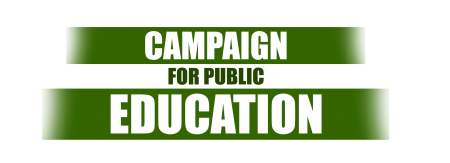Schools no safer, Falconer says
Toronto board’s inaction due to lack of funding from province, he argues, year after scathing report
January 10, 2009 IAIN MARLOW Toronto schools are no safer one year after the release of a scathing report into school violence because the province has not provided enough money to implement its most crucial recommendations, says the report’s lead author, lawyer Julian Falconer.
In a candid, exclusive interview yesterday with the Toronto Star, Falconer said no one should expect change until there are funds for the Toronto District School Board to hire additional support staff, such as social workers and youth counsellors.
“Change comes at a price. Change costs money,” he says. “The TDSB cannot do it alone.”
Although the board has introduced new programs, such as a student hotline, and put police officers in 22 schools, board officials admit many changes involved internal reorganization.
Doug Jolliffe, president of the high school teachers’ union, said he is frustrated with the board’s inaction on the report’s recommendations.
“We don’t feel like the board has listened, really, to anything Falconer recommended,” Jolliffe says. “Things have stayed pretty much the same.”
The board convened the School Community Safety Advisory Panel in June 2007, after the shooting death of 15-year-old Jordan Manners inside C.W. Jefferys Collegiate. The panel was instructed to investigate Jefferys and schools across the city.
The panel reported last January with a 1,000-page tome that identified numerous problems within Toronto high schools, including under-reporting of violent incidents, a culture of silence that reprimanded whistleblowers and a shortfall of necessary support staff, such as social workers and counsellors.
The final report included 126 recommendations.
For example, Falconer said it was essential the board hire 20 social workers, 24 attendance counsellors, and 20 child and youth counsellors, the minimum required for safe schools in the city.
School board chair John Campbell said he could not say, one year after the report, that schools were safer. “There’s nothing I can point to,” he conceded. “I think that basically our schools were safe.”
Campbell pointed to several new hires, including 26 hall monitors and four outreach workers – none of whom can counsel youth. Additionally, there are police officers in schools, which the board doesn’t pay for.
But Falconer said officers in schools reflect a flawed “one-size fits all approach” to improving relationships between students and police. He’s “at a loss” to explain why it was implemented, considering they never recommended it.
“The reality is that there are some schools for whom the uniform and a gun represent a source of security,” Falconer said. “And there are other schools, and other youth with different life experiences, for whom the uniform and the gun are a source of fear.”
The board has made the changes it can afford, Campbell said.
“We would like to hire more specialty personnel to deal with teenagers,” he said. “Have we met the standard that Julian Falconer and the panel wanted us to set? No. It’s not from a lack of willingness, it’s from a lack of resources.”
Cathy Dandy, the trustee responsible for implementing the report’s recommendations, said there has been a lot of teacher training around gender-based violence, anti-racism, and equity issues.
The money they have available is “a drop in the bucket,” Dandy said. However, she added, “it’s not just about money” and the board is “not even close to being finished” with the recommendations.
“It’s about political will, co-ordination, and the willingness to decide that we are going to rewrite policy. The school board and city are creatures of the province. We do need those ministries,” she said.
Falconer said trustees and the board deserve a lot of credit, but the time for talk and reports is finished. He explained the northwest family of schools has two social workers stretched so thin, that they’re practically “non-existent.”
“How can you expect two social workers to effectively service 13 schools and at the same time be attendance counsellors for all their elementary schools,” Falconer said. “This is the stuff of absurdity.”
He added: “If there’s no change on the ground, frankly, we’re still in the same quagmire.”
Kathleen Wynne, Ontario’s education minister, said there has been roughly $4 million of new funding this year for Toronto high schools, both public and Catholic.
But she stressed much of the provincial level efforts existed before Falconer concluded the panel’s investigation, such as a report issued by MPP Liz Sandals on safe schools in December.
“We’ve been on a trajectory to increase funding, to increase resources in the system, not as a result of Julian Falconer, but as a result of what we saw as imperatives within the system,” Wynne said. “We have been working on many of the same issues and putting as many resources into the system as we can afford.”
Toronto Star
Recent Posts

